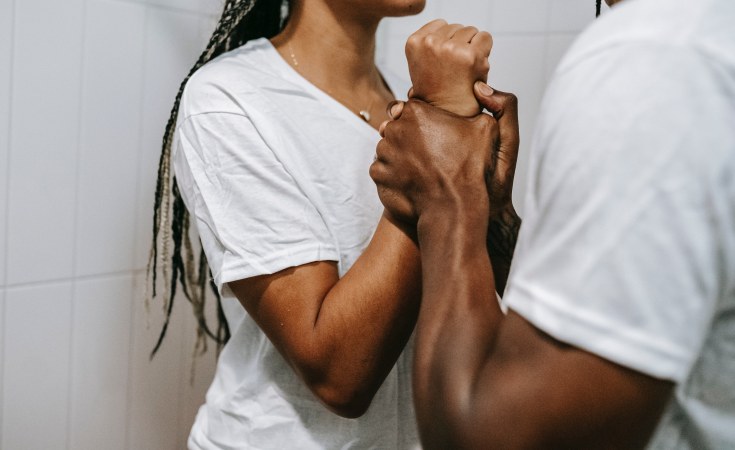Majority of citizens say victims are likely to face stigmatisation if they report to the police.
Key findings
- ▪ Gender-based violence (GBV) tops the list of the most important women's-rights issues that Zambians say their government and society must address.
- ▪ Almost half (48%) of citizens say violence against women and girls is a "somewhat common" or "very common" occurrence in their communities.
- ▪ Almost three-fourths (72%) of Zambians say it is "never" justified for a man to use physical force to discipline his wife.
- ▪ More than half (54%) of Zambians consider it "somewhat likely" or "very likely" that a woman who reports being a victim of GBV will be criticised, harassed, or shamed by others in the community. o But most (73%) believe that the police are likely to take cases of GBV seriously. ▪ Views are divided on whether domestic violence should be referred to the police or handled within the family: 43% say domestic violence should be treated as a criminal matter, but a slim majority (51%) consider it a private matter.
More than one-third (36%) of Zambian women have experienced physical violence since age 15. One in five women and girls (20%) suffer sexual abuse before age 18, and 39% are married before age 18 (Zambia Statistics Agency, 2019; Republic of Zambia, 2018; Bessa & Malasha, 2020).
The Victim Support Unit of the Zambia police reported a 29% increase in gender-based violence (GBV) cases in the fourth quarter of 2022 compared to the same period in 2021, from 7,920 to 10,241 (Xinhuanews.com, 2023), though many other incidents of GBV go unreported.
Activists point to poverty, women's power disadvantage in relationships, and social acceptance of GBV as key factors leaving many women vulnerable to abusive spouses, workmates, male relatives, and well-off individuals (Care, 2017; USAID, 2010).
To protect women and girls, Zambia has domesticated international and regional conventions on women's rights in national laws and instruments such as the Anti-Human Trafficking Act (2008), the Anti-Gender Based Violence Act (2011), the National Gender Policy (2014), and its National Plan of Action. The World Bank's (2023) Zambia Gender-Based Violence Assessment identifies a variety of GBV prevention and response programmes in the country, including hospital-based and village-led one-stop centres and shelters, counseling services, and fast-track courts. But it notes that these efforts are often under-funded, poorly coordinated, and geographically limited, failing to reach many of the country's GBV survivors.
This dispatch reports on a special survey module included in the Afrobarometer Round 9(2021/2023) questionnaire to assess Africans' experiences and perceptions of gender-based violence.
Survey findings show that Zambians see GBV as the most important women's-rights issue that their government and society must address. While most Zambians say it is never justified for a man to use physical force to discipline his wife, a majority say violence against women and girls is common in their communities.
Slim majorities also consider domestic violence a private matter to be handled within the family and think it's likely that a woman who reports GBV to the authorities will be criticised, harassed, or shamed by others in the community.
Edward Chibwili Edward Chibwili is the national investigator for Zambia.


